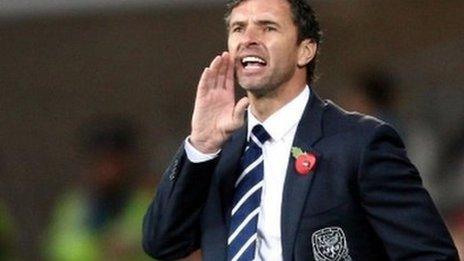Gary Speed: Wales manager's mother talks about his death
- Published
Gary Speed's mother is urging people to open up about their mental health
Gary Speed's mother has spoken at length about the sadness that "never goes away," more than a decade after the ex-footballer took his own life.
The former Wales manager was found dead at his home in November 2011.
He was widely credited with reigniting Welsh football fortunes and setting them on the road to the 2022 World Cup.
His mother Carol said she would never find the answer to why he died but urged others to talk about their mental health - and get help.
"It's just something that you don't ever get over at all," she said, speaking openly about the former Leeds, Newcastle and Everton midfielder in one of the first public interviews since he died.
"You know, you can smile and you can laugh, and you can have a good day, but it's always there. The sadness is always there."
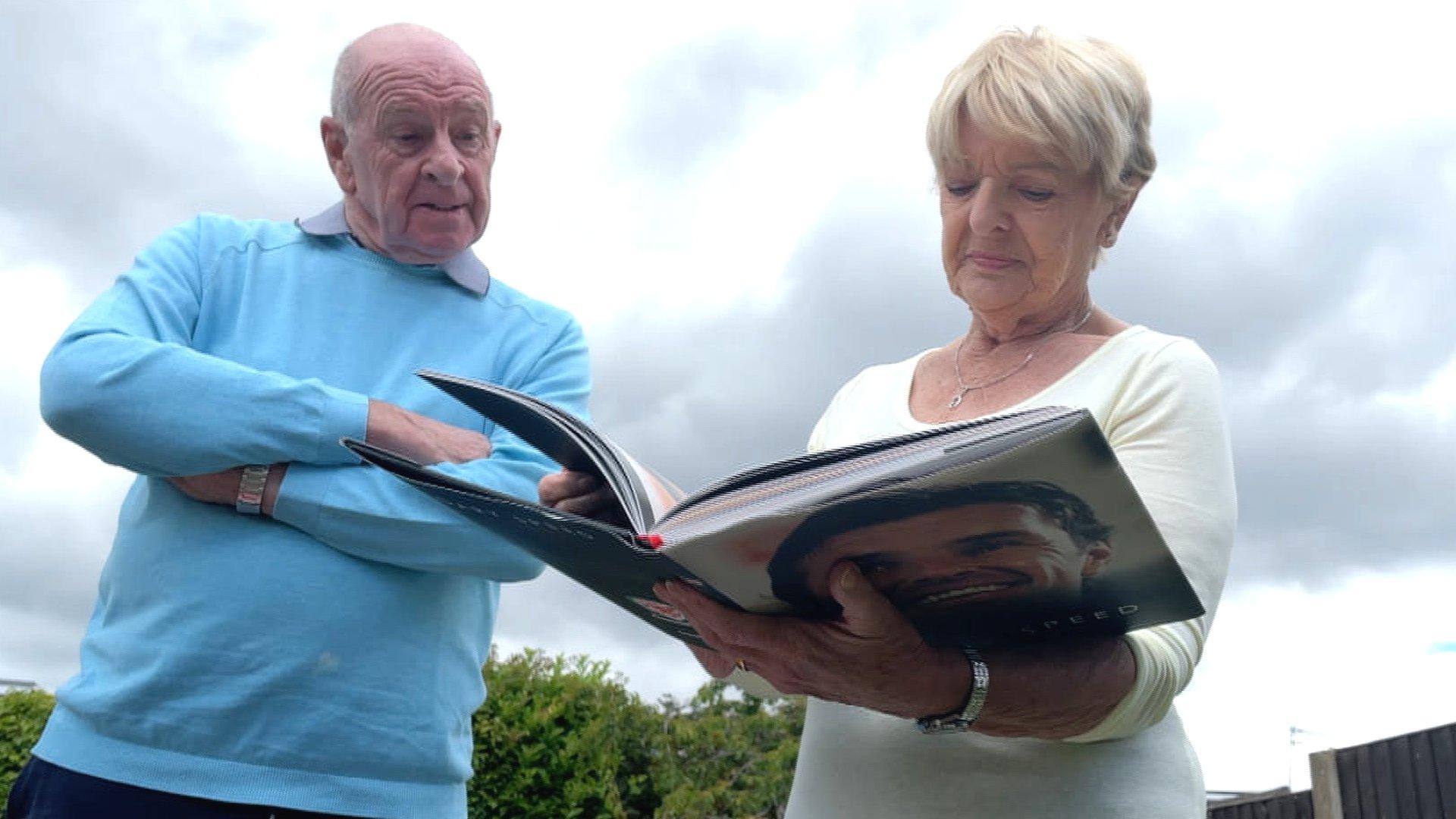
Speed's parents Roger and Carol say they miss their son "every day"
Now retired, Carol Speed still shares the modest semi-detached home in Deeside, Flintshire, where the Welsh sporting giant grew up with her husband Roger, Speed's father.
Roger now lives with dementia, and Carol cares for him. They both still treasure the memories of their son captured in scores of photos, shirts and pennants adorning walls around the house.
It is a shrine to a footballing star who was loved by both his family and fans, but will always remain 42.
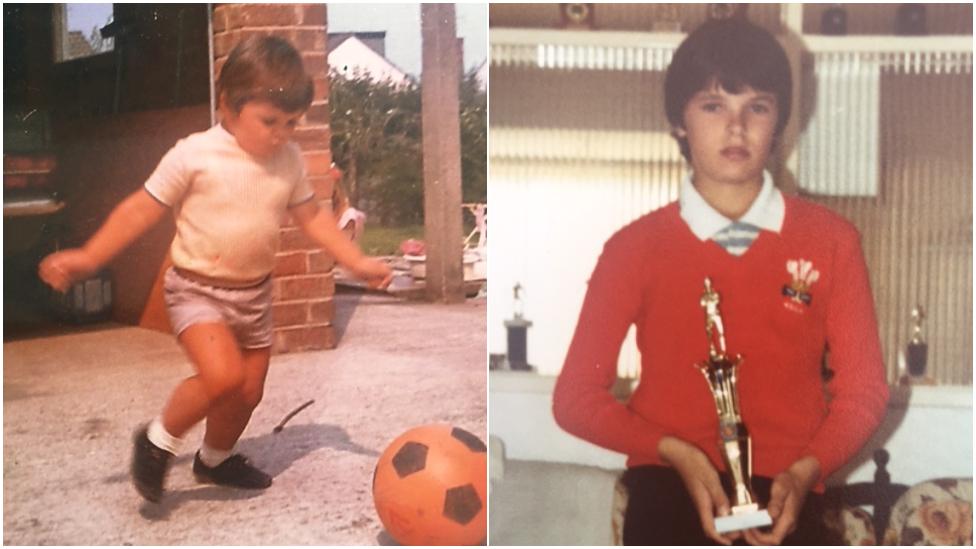
A star in the making - just two of the precious photographs Speed's parents still cherish
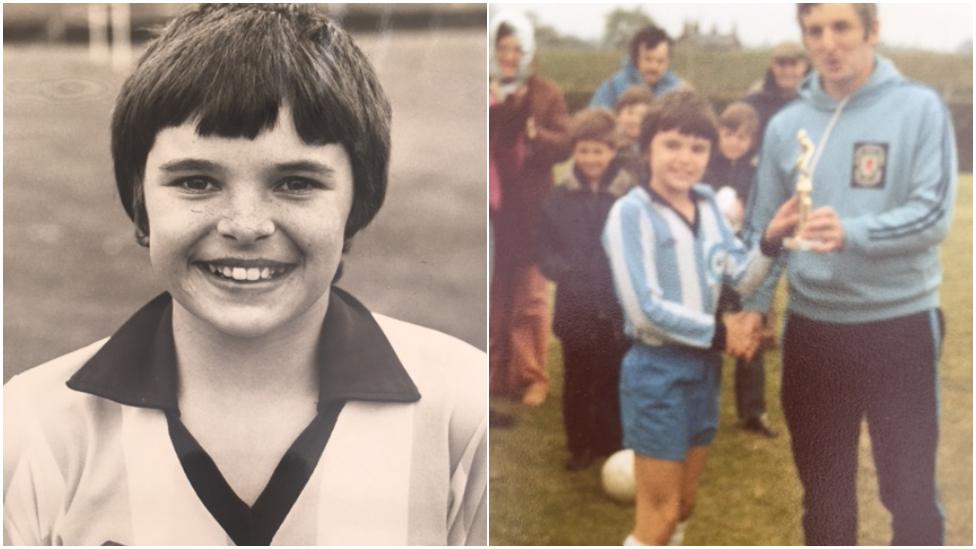
Speed's road to success started early as a winning player for Deeside Primary Schools
Outside, Carol has been joking about how a young Gary would constantly kick a ball against the garage door, so hard he broke it.
The lush green lawn at the back of the house was once worn bare by the teen's kickabouts.
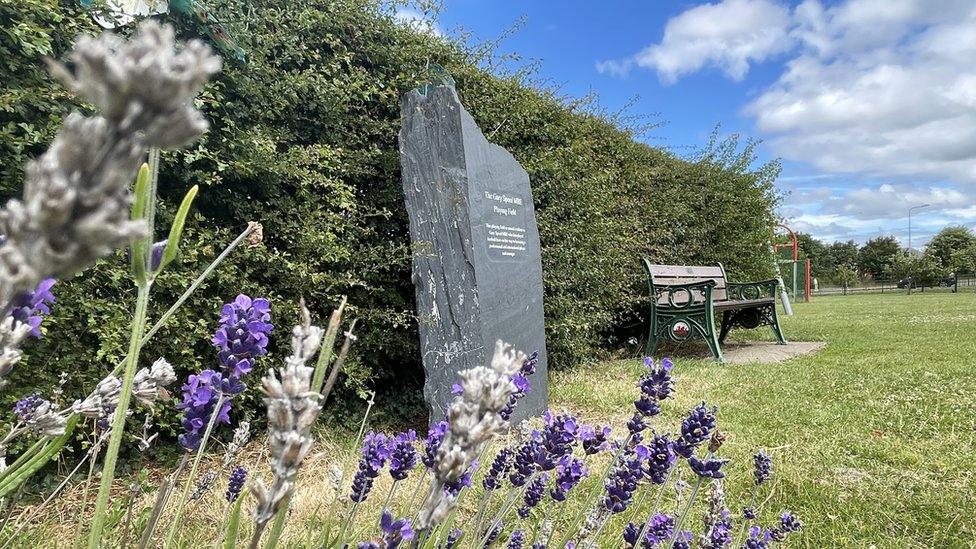
The Aston Park field where Speed used to play has been renamed in his honour
Not much more than a stone's throw from their front door stands the playground and field that marks Aston Park, where Speed honed his footballing skills with schoolmates.
Today, a stone plinth and bench mark a memorial to Queensferry's lost hero.
At an inquest 10 years ago, the coroner said he could not be satisfied Speed had intended to kill himself.
He left behind his wife Louise and two sons, Tommy and Ed, who were just teenagers when he died.
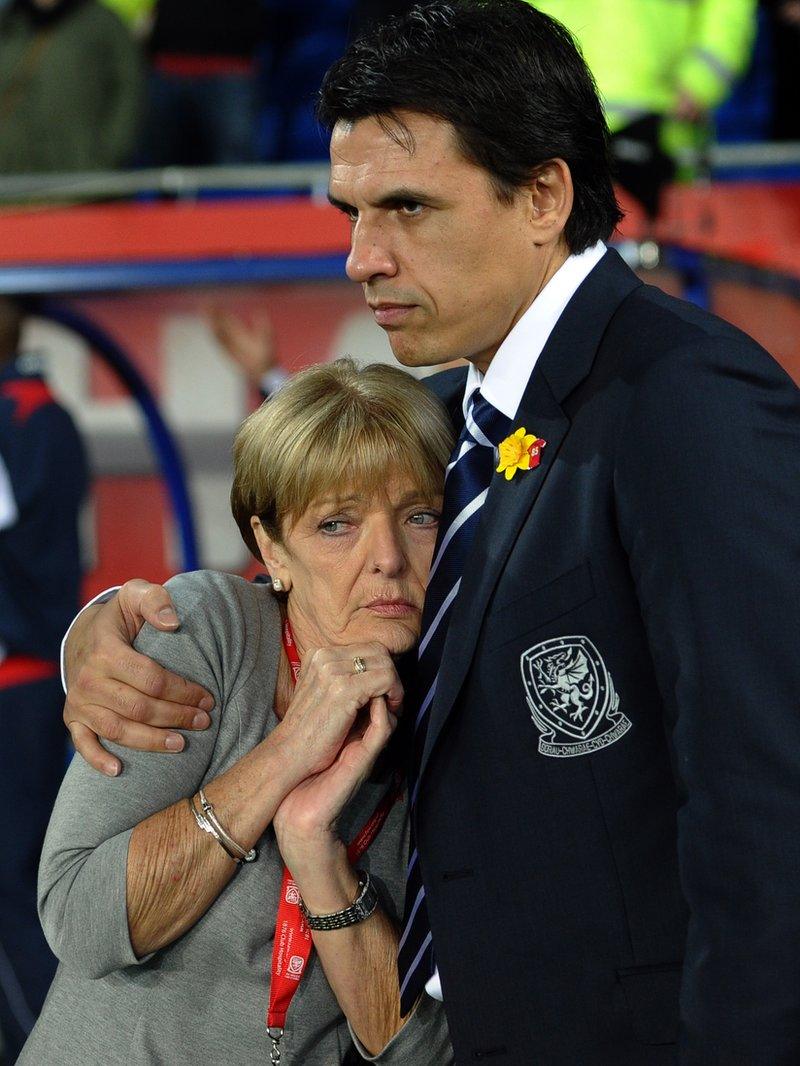
2012 memorial game: Chris Coleman has stayed in touch with Carol after he succeeded Speed as Wales boss

For Carol, questions about the death still haunt her.
"I'll never find the answer to why. That makes it doubly hard to live with," she said.
"You know, if people are ill and they die, then you know why, but we didn't. We just didn't know with Gary.
"No answers whatsoever - no. And that's hard - that's hard. Because we didn't have any idea he was feeling like that.
"He never showed it. He was always smiling.
"We couldn't keep an eye on him, because we didn't think there was anything wrong."
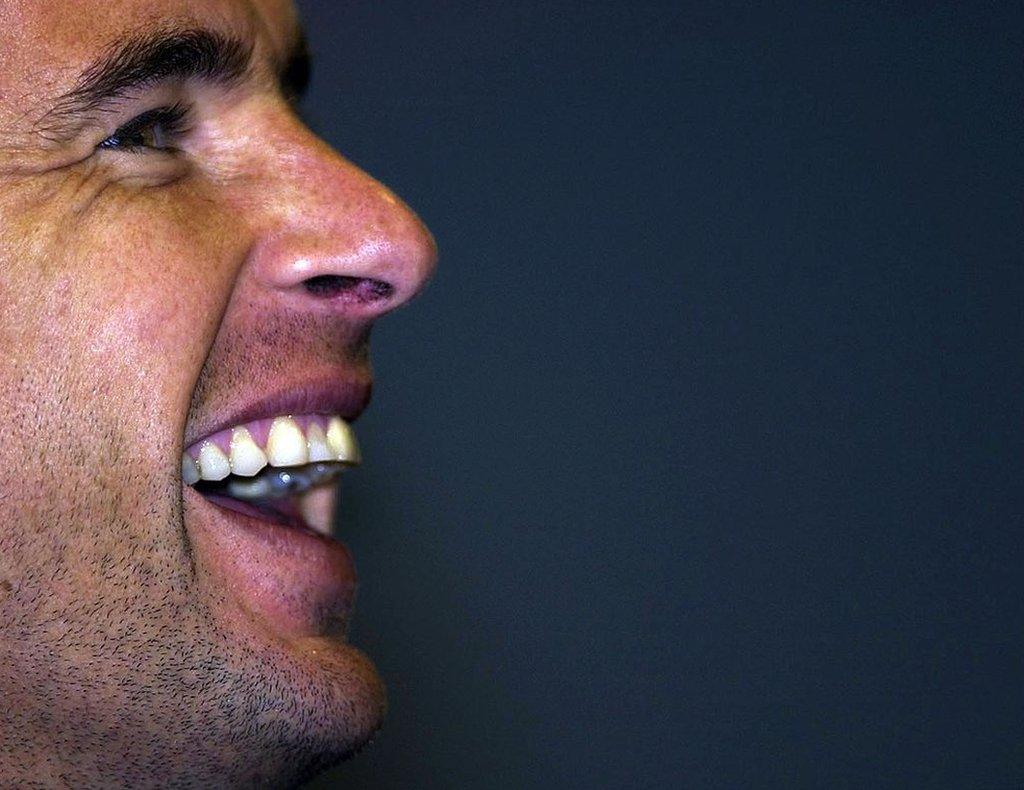
Her son was "always smiling" and kept any mental health fears hidden away

In words perhaps only a mother could utter, she added: "If I'd had been there that evening it wouldn't have happened. No way - no way.
"Gary wasn't short of money, he had a nice house, a nice family - a job that he absolutely adored. So, if it can happen to someone like him, it can happen to anyone, can't it?"
The death of Gary Speed was marked by a national outpouring of grief, from supporters at his former clubs - Leeds, Newcastle, Everton, and Bolton - and, of course, the Wales national team.
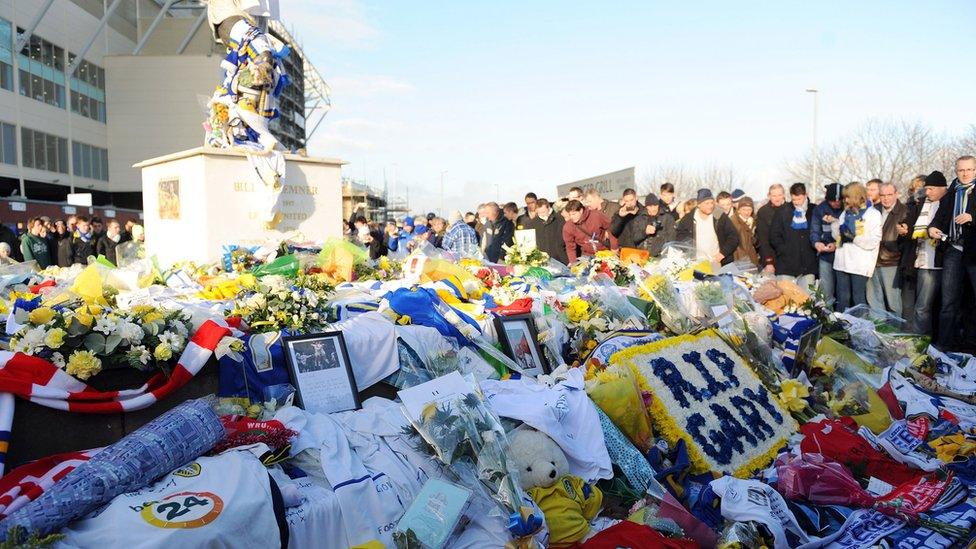
There was an outpouring from fans after Speed's death - here just one of the tributes at Leeds United
"He'd only just gone to Sheffield United, so I was shocked when he took the Welsh job," recalled Carol.
"He said: 'You don't turn your country down', you know.
"I'm just glad he did well with them, for the short time he was with them."
She said while the entire family still struggles with the loss of the footballer, the support from fans a decade on remains "unbelievable".
"People are remembered on sort of anniversaries of their death and things like that, but there's always something going on about Gary. It is very touching.
"We always thought he was a good lad, he was our lad and we thought he was wonderful - but so did everybody else.
"I can't believe that people are still talking about him, really."
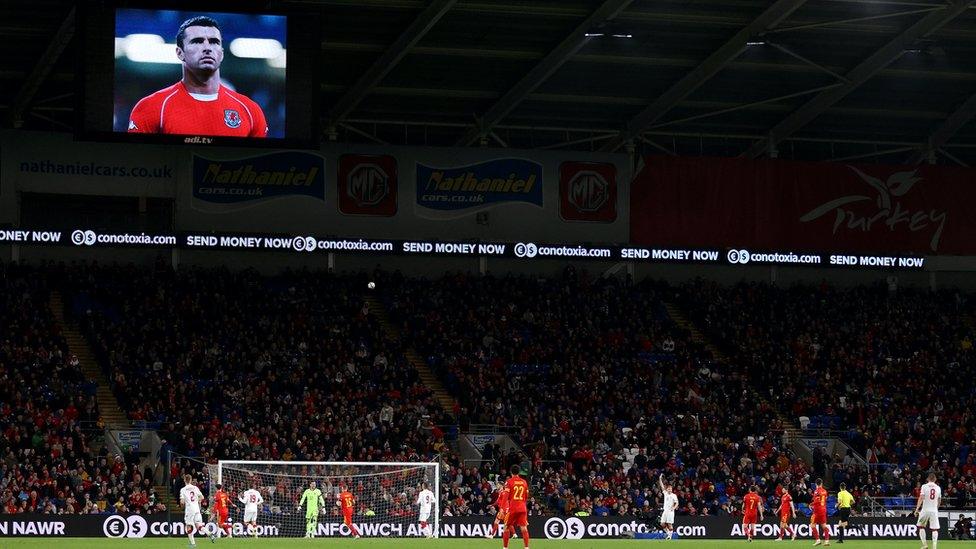
Speed is seen as laying the foundation for Wales to qualify for the 2022 World Cup
However, it has taken Carol over a decade to be able to watch football again. She said she could always envisage her son on the pitch or touchline, and that had been unbearable.
"I couldn't watch football at all for 10 years and didn't want to know about football at all," said Carol.
"I'm enjoying it again now. I don't know whether I blamed football - I don't know."
It means she will be closely following Wales' progress as the side heads to Qatar for the World Cup.
"When I first started watching Wales again, it felt a bit strange, but I'm past that now," she added.
Carol was also certain how her son would feel about qualification: "He'd be over the moon. He'd be really, really into it, he would. I think that was his goal really.
"He wanted to get them there, definitely."

Qualified: Gareth Bale roars as Wales win through to the World Cup finals in Qatar
It will be 11 years since his death when Wales walk out for their Group B games in Qatar in November, with the anniversary falling between matches against Iran and England.
Speed's mother said discussions around mental health, especially for men, had undergone an important change since his death.
"It was never spoken about. It never even crossed my mind. I couldn't believe it when Gary did what he did. I was just numb.
"But it seems to have been all brought out since Gary, and people are not frightened to talk about it anymore."
She said the message was simple: "Speak to someone even though it's hard.
"Because they had no idea what it does to the family. It just breaks people up, completely.
"It certainly has, our life. It's ruined our life completely."
Additional reporting by Peter Gillibrand
If you have been affected by any of the issues raised here, or you or someone you know is feeling emotionally distressed, you can access advice and support through BBC Action Line.
Related topics
- Published21 June 2022
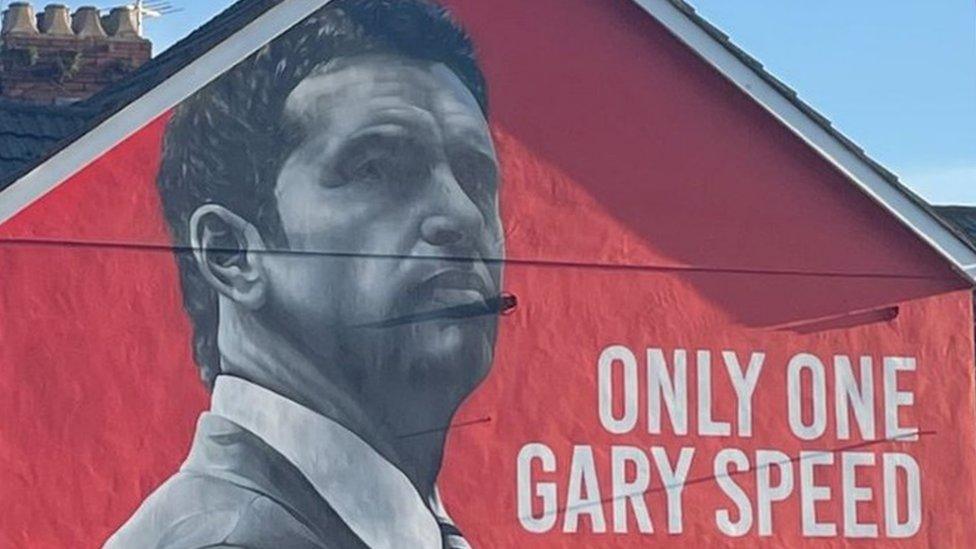
- Attribution
- Published21 May 2022
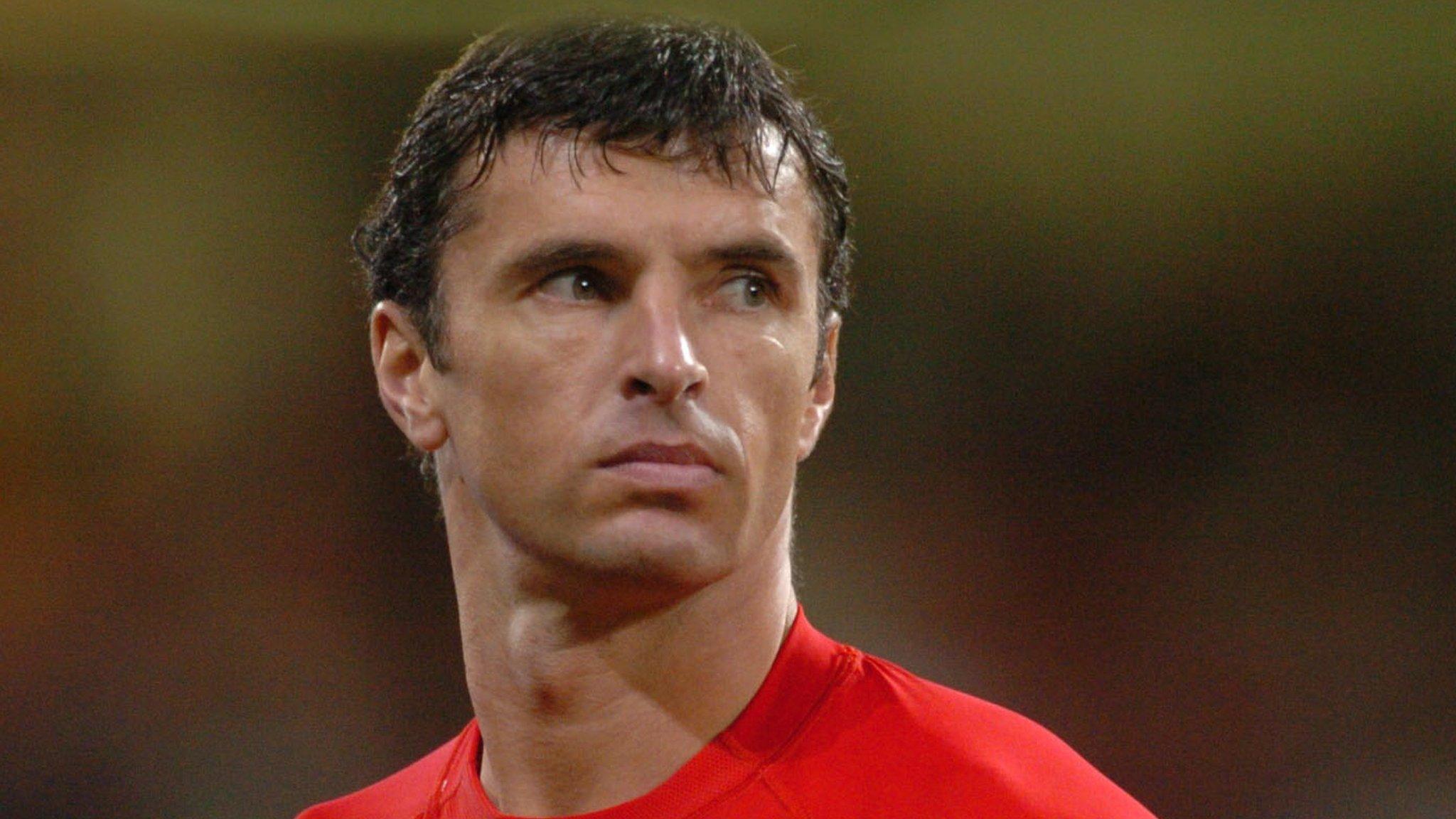
- Attribution
- Published26 November 2021
- Attribution
- Published10 November 2021
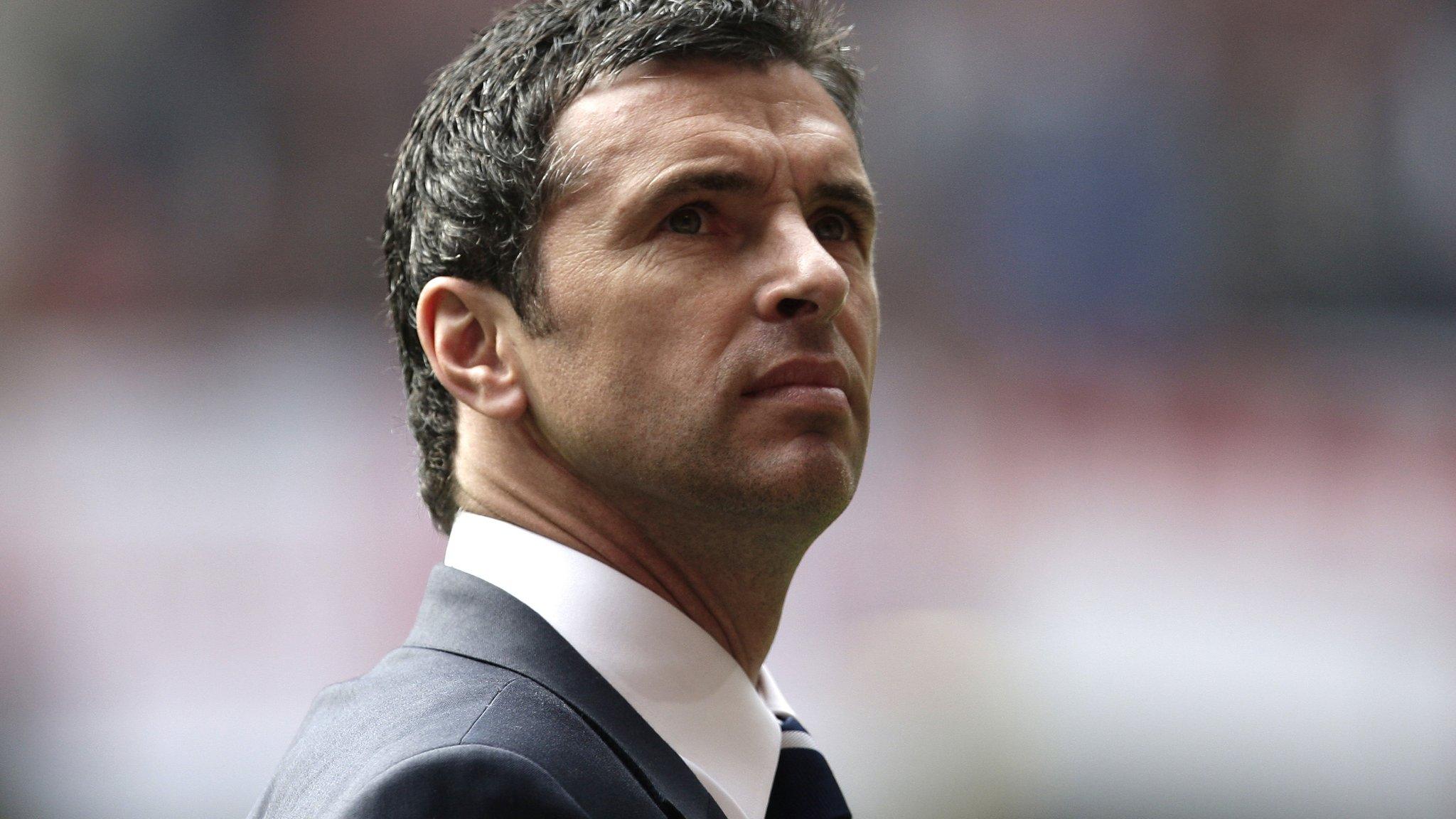
- Published30 January 2012
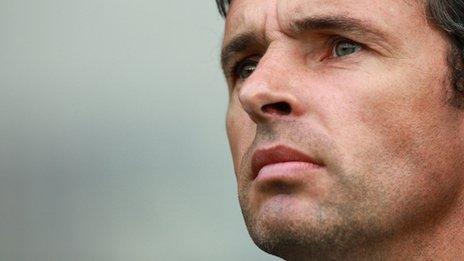
- Published30 January 2012
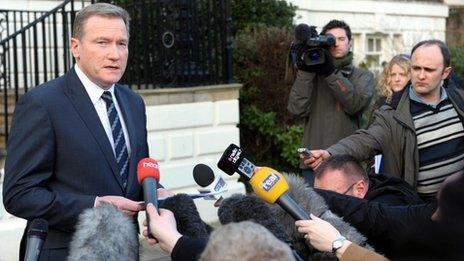
- Published27 November 2011
